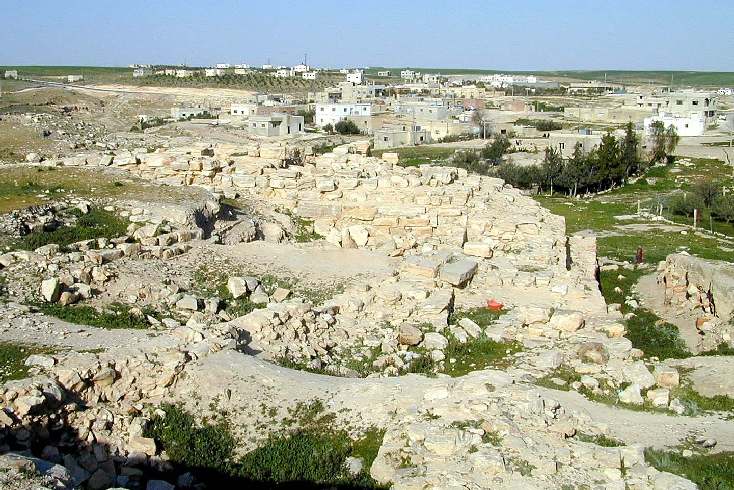|
Other Archaeological Sites / The Neolithic of the Levant (500 Page Book Online) Ancient Dhiban (Biblical Dibon) in Jordan The ancient settlement lies adjacent to the modern town. Excavations have revealed that the site was occupied intermittently over the past 5,000 years and its earliest occupation occurred in the Early Bronze Age in the third millennium BC (2). At the time of the Conquest or Exodus in the 15th century BC the region was occupied by the Amorites, who had earlier taken it from the Moabites. The Israelites then captured the area with the tribe of Reuben taking possession (3). ... are the wide-spread remains of Dhiban, the Dibon of the Bible. This was one of the stations of the Israelites in their advance to Palestine. (Numbers xxxiii:45). It was rebuilt by the tribe of Gad (xxxii:34) and finally assigned to Reuben. Both Isaiah and Jeremiah afterwards mention it among the towns of Moab (1) ... The area see-sawed back and forth for the next several centuries, passing to the Moabites, Israelites, Ammonites and back to Israel. In the mid-ninth century BC Mesha was successful in throwing off the yoke of Israel and bringing the area once again under the authority of Moab (3). The Mesha Stele or Moabite Stone The Mesha Stele or Moabite Stone was discovered in Dhiban in Jordan in 1868 by a French Anglican medical missionary by the name of F.A. Klein. The Mesha Inscription connected Dhiban in Jordan with the nearby mound of the biblical “Dibon” as well as implying that it was an [important settlement] or capital of Mesha (Moab) (2). I am Mesha son of Chemosh, King of Moab the Dibonite: So begins one of the most extraordinary ancient documents ever found. Mesha was ruler of the small kingdom of Moab in the mid-ninth century BC. He was a contemporary of King Jehoshaphat of the southern kingdom of Judah (870-848 BC) and King Joram of the northern kingdom of Israel (852-841 BC) (3).
(1) A Handbook for Travellers in Syria and Palestine by Josias Leslie Porter (1858)
(2) Dhiban Jordan (Wikipedia)
(3) Mesha, King of Moab by Bryant Wood (1996) in the Journal "Bible and Spade"
|
